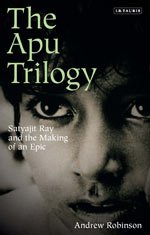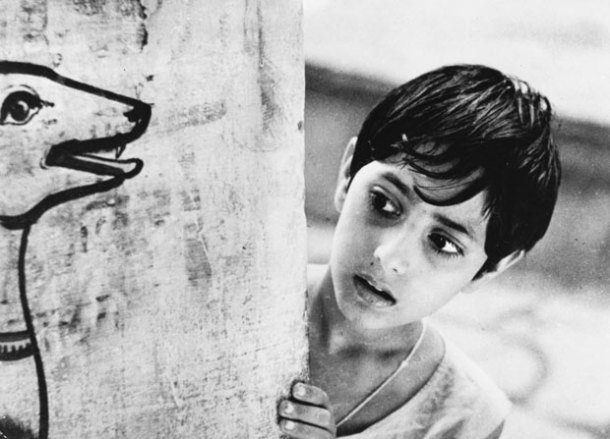As the BFI commences a two-month retrospective of Satyajit Ray in August, Andrew Robinson contemplates the enduring allure of this cinematic maestro.
Twenty years ago, Satyajit Ray was honored with an Academy Award for Lifetime Achievement shortly before his passing in Calcutta in 1992. Since then, India has experienced significant economic growth following the liberalization of its economy in 1991.
However, Ray’s films continue to resonate with audiences, maintaining their power, humanity, humor, and relevance in India and worldwide. The British Film Institute, a long-time supporter of Ray since the Apu Trilogy of the 1950s, is providing audiences another opportunity to enjoy his films through a comprehensive retrospective at the BFI Southbank cinema in London from August to October 2013.
The essence of comprehending Ray’s films lies in recognizing that he, despite his deep connection to Bengal, was also deeply engaged with Western culture. This included European and Hollywood films, as well as literature, art, and music.
“I’m grateful for being acquainted with both cultures, as it provides me with a much stronger foundation as a filmmaker,” Ray expressed to me during my research for his biography. One of his most celebrated films, “Charulata,” was directly influenced by his admiration for Mozart’s operas.
Born in Calcutta in 1921, Ray received an education in both Bengali and English. Initially, he pursued a fine arts degree but later shifted to a career in commercial art within the advertising industry.
Also Read On: A Kind of a ‘Huh?’: The Siting of Twentysix Gasoline Stations
As a filmmaker, Ray was primarily self-taught, except for a brief period assisting Jean Renoir during the production of “The River,” when Renoir visited from Hollywood. The most significant influence on Ray’s debut film, “Pather Panchali,” completed in 1955, was his experience of watching the Italian neorealist masterpiece, “Bicycle Thieves,” in London in 1950. Reflecting on this, Ray remarked, “It gored me.”
Ray’s films encompass an extraordinary array of moods and genres, ranging from the epic tragedy of the Apu Trilogy to the opulent period comedy “The Chess Players” and from the ghostly tale of “Monihara” to the whimsical children’s fantasy “The Adventures of Goopy and Bagha.”
Ray also crafted numerous popular Bengali songs, one of which, ‘Maharaja, We Salute You’, was spontaneously sung by the crowds at his funeral. What sets Ray apart is his unparalleled versatility. He independently authored his scripts, often creating original screenplays. He meticulously designed sets and costumes, paying attention to the smallest details.
Ray brought his characters to life with remarkable subtlety through his acting direction. He also personally handled camera operations and meticulously edited each frame. Additionally, he composed music, blending Western and Indian notation styles. Ray even took charge of designing credits and posters for his films.
Critics of Ray often accused him of sidestepping politics in his films. While this criticism may have had some validity during the first half of his career, up to the late 1960s, it holds little weight during the latter half.
Following the production of “The Adventures of Goopy and Bagha,” Ray’s tone shifted, delving first into biting irony with “Days and Nights in the Forest,” and subsequently into an overtly political trilogy: “The Adversary,” “Company Limited,” and “The Middle Man.” From 1969 onwards, Bengal was shaken by the Naxalite movement, inspired by Maoism, which witnessed terrorist acts by young Bengalis, brutal reprisals by police and the army, and a period of national Emergency declared by Indira Gandhi in 1975, effectively establishing her as a dictator.
While Ray held some sympathy for revolution, as depicted in the relatively hopeful first film, he never endorsed violence. Instead, he grew increasingly disillusioned by the corruption and immorality prevalent among politicians, businessmen, and ordinary citizens, depicted vividly in the latter two films of the trilogy. In fact, “The Middle Man” stands out as one of the most audacious artistic protests against the Indian government during the Emergency.
During the 1970s, Ray’s emotionally charged depiction of the man-made Bengal Famine of 1943 in “Distant Thunder” managed to uphold faith in individual compassion, despite the historical tragedy resulting in the deaths of millions from hunger and disease.
Similarly, his exquisite historical drama portraying the British military takeover of Lucknow in 1856, “The Chess Players,” was primarily concerned with individual morality rather than political ideologies. However, his two detective films, “The Golden Fortress” and “The Elephant God,” featuring his own Bengali duo reminiscent of Holmes and Watson, hinted at a diminishing belief in official justice.
In “Deliverance,” a stark condemnation of the cruelty of untouchability, Ray moved away from the optimism of “Pather Panchali” as far as possible.
While still infused with his distinctive comedy, Ray’s final three films served as urgent cautionary tales to his compatriots about the dangers of religious fundamentalism and societal corruption.
Sadly, these warnings proved to be prophetic, given the infamous destruction of the mosque at Ayodhya in 1992 by a Hindu mob and numerous subsequent bribery scandals. Nevertheless, they also stood as works of art with universal resonance. As the renowned Henri Cartier-Bresson, a longtime admirer of Ray, aptly noted about Ray’s penultimate film, “Branches of the Tree,” it exuded a distressing beauty.
Ray’s contemporary filmmaker, Akira Kurosawa, once remarked: “The quiet but profound observation, understanding, and love for the human race that are evident in all of Ray’s films have deeply impressed me.”
In an era where the glitz and glamour of Bollywood frequently overshadow Indian culture, it is truly refreshing to encounter an alternative, more nuanced, and profound cinematic portrayal of India and the human experience – the world of Satyajit Ray. ■
 Andrew Robinson is the author of three books on Satyajit Ray: Satyajit Ray: The Inner Eye; Satyajit Ray: A Vision of Cinema; and The Apu Trilogy: Satyajit Ray and the Making of an Epic.
Andrew Robinson is the author of three books on Satyajit Ray: Satyajit Ray: The Inner Eye; Satyajit Ray: A Vision of Cinema; and The Apu Trilogy: Satyajit Ray and the Making of an Epic.
Image shows Apu in Benares from Aparajito (1956).
More information about BFI’s Satyajit Ray retrospective can be found here.
Also Read: Black British Artists: Celebrating Nelsons Ships


